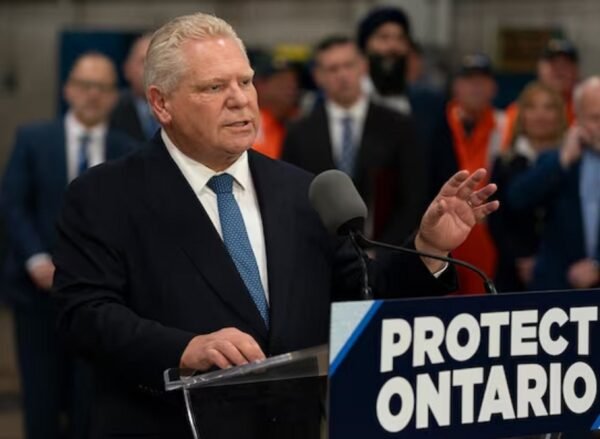Ontario has officially terminated its contract with Elon Musk’s Starlink

Ontario has officially terminated its contract with Elon Musk’s Starlink, a decision driven by the recent imposition of tariffs by U.S. President Donald Trump. Premier Doug Ford announced this move on February 3, 2025, stating that Ontario will also prohibit U.S. companies from bidding on provincial contracts until the tariffs are lifted. This ban is part of a broader response to what Ford described as actions “hellbent on destroying our economy” by the U.S. administration.
Contract Value: The deal with Starlink was valued at approximately CAD 100 million (around USD 68 million) and aimed to provide high-speed internet to 15,000 underserved homes and businesses in rural Ontario, set to commence in June 2025.
Tariff Background: Trump’s tariffs included a 25% levy on imports from Canada, which prompted retaliatory measures from Canadian leaders. Ontario’s decision reflects a significant pushback against these tariffs, which are seen as detrimental to Canadian economic interests.
Ford’s Statements: In his announcement, Ford emphasized that U.S.-based businesses would lose out on “tens of billions of dollars” in potential revenue due to this ban and linked the decision directly to Trump’s policies. He remarked that Canada did not initiate this conflict but is prepared to respond vigorously.
Broader Implications: This action by Ontario is part of a larger trend among Canadian provinces to reassess their dealings with U.S. firms in light of the escalating trade tensions. Other provinces are also taking steps to limit purchases from U.S. suppliers, particularly in sectors like alcohol distribution.
Ontario’s cancellation of the Starlink contract marks a significant escalation in the ongoing trade war between Canada and the United States, highlighting the economic ramifications of international tariff policies.
Ontario has officially terminated its contract with Elon Musk’s Starlink internet service in a significant response to the recent imposition of tariffs by U.S. President Donald Trump. Premier Doug Ford announced the decision on February 3, 2025, stating that the province would not engage in business with entities that undermine Ontario’s economy. This contract, valued at approximately CAD 100 million (around USD 68 million), was intended to provide high-speed internet access to rural and northern communities in Ontario, a project set to commence in June 2025.
In addition to scrapping the Starlink deal, Ontario has implemented a ban on U.S.-based firms from securing provincial contracts until the tariffs are lifted. This measure is part of a broader retaliatory strategy against Trump’s tariffs, which include a 25% levy on Canadian goods and a 10% tariff specifically targeting Canadian energy exports. Ford emphasized that U.S. companies would lose out on substantial revenue opportunities due to these restrictions, which could affect tens of billions of dollars in government procurement spending annually.
The backdrop to this escalation is a rapidly deteriorating trade relationship between Canada and the United States, with both nations poised to impose significant tariffs on each other’s goods. Canada has announced plans for retaliatory tariffs on approximately CAD 106 billion worth of U.S. imports, further heightening tensions between the two countries. Ford’s remarks reflect a sentiment of readiness to confront what he describes as an unwarranted trade conflict initiated by the U.S., asserting that Canada did not instigate this situation but is prepared to respond decisively.
As the trade war unfolds, it remains uncertain how these developments will impact broader economic relations between Canada and the U.S., especially given the historical interdependence between the two economies. However, Ontario’s actions signal a significant shift towards protectionist measures in response to perceived economic threats from its southern neighbor.
